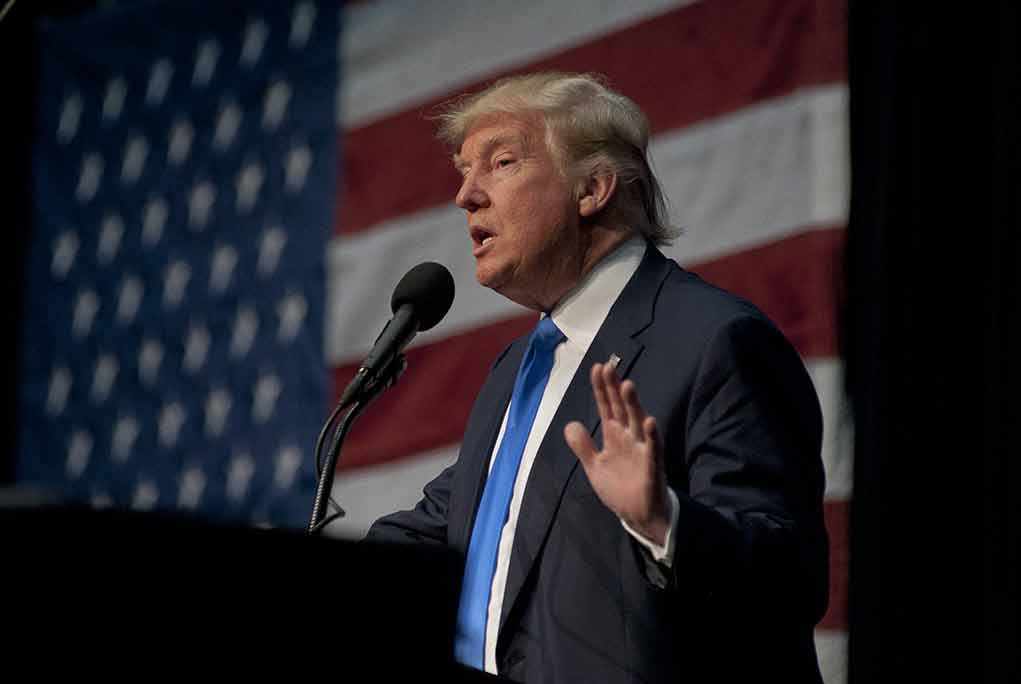
When a president reveals that a global music icon has personally asked for a pardon after a conviction for federal prostitution charges, the boundaries between power, fame, and justice are thrown into sharp relief—leaving the public to wonder just how influence really works behind closed doors.
Story Snapshot
- Donald Trump confirmed Sean ‘Diddy’ Combs requested a presidential pardon after being sentenced to 50 months for federal prostitution charges.
- The case places celebrity, criminal justice, and presidential authority on a collision course in the public eye.
- Combs’ legal team is seeking alternative avenues amid uncertainty over presidential intervention.
- The episode revives debate over fairness, transparency, and privilege in the clemency process.
Trump’s Pardon Reveal Ignites Debate Over Power and Privilege
Donald Trump’s claim that Sean ‘Diddy’ Combs reached out for a pardon after his October 2025 conviction for federal prostitution charges sent shockwaves through both political and entertainment circles. The president’s statement, made in front of reporters, did not just acknowledge the request—it dragged a private plea into the glare of public scrutiny. Unlike the usual backroom maneuvering that characterizes high-profile clemency pleas, this was a direct collision between the spectacle of celebrity and the gravity of the Oval Office.
President Trump said that Sean "Diddy" Combs has reached out to ask for a pardon following his conviction on two prostitution-related charges. https://t.co/AkFNvl17fI
— World News Tonight (@ABCWorldNews) October 7, 2025
Combs, sentenced to 50 months for transporting two former girlfriends to meet paid escorts at private parties, now finds his legal battle playing out on the national stage. Trump, never shy about the power of his pen, quipped, “I have a lot of people that ask me for pardons. I call him Puff Daddy. He’s asked me for a pardon.” The president’s offhand tone belied the stakes: the fate of a man whose brand has always straddled the line between notoriety and mainstream acceptance.
How Presidential Pardons Became Celebrity Headlines
Presidential pardons have always been a potent symbol of executive might, but seldom do they become this public, this quickly. Historically, presidents have offered clemency to celebrities—from Lil Wayne to Kodak Black—but rarely with such open discussion. The Combs case is distinctive: the charges are serious but not as severe as sex trafficking or racketeering, for which the music mogul was acquitted. The sentence is real, the appeal is real, and the implications for both parties are profound.
Combs’ legal team is quietly maneuvering, seeking a transfer to a lower-security facility in New Jersey, while the Department of Justice’s Office of the Pardon Attorney waits in the wings. Yet, the president holds the ultimate authority. For most Americans, the idea that a celebrity can bypass formal channels and appeal directly to the commander-in-chief is both fascinating and unnerving. It’s a reminder that in America, fame is a currency with unpredictable power.
Justice, Optics, and the Celebrity Pardon Dilemma
The optics of Combs’ request—and Trump’s decision to publicize it—have triggered fresh debate about the fairness and transparency of the pardon process. Critics argue that high-profile interventions erode trust in equal justice, suggesting that celebrity and connections outweigh merit. Legal scholars point to the president’s nearly unfettered powers, but warn that public confidence depends on the perception of impartiality.
Supporters of Combs counter that the pardon power exists for a reason: to correct excesses in the system and offer redemption. They point to previous high-profile pardons as evidence that the process, while imperfect, is an essential safety valve. Yet, with the spectacle reaching fever pitch, Americans are left to wonder whether justice is blind, or simply peeking through her blindfold at the rich and famous.
What Comes Next for Combs, Trump, and the System
As of now, no decision has been announced regarding Combs’ pardon. His attorneys continue to pursue every legal avenue available, while Trump’s public comments ensure the spotlight remains fixed on the case. The music mogul’s business interests hang in the balance, and the entertainment industry braces for potential ripple effects. If a pardon is granted, it will set a precedent for future celebrity requests—and reignite the debate over privilege, power, and the rule of law.
For now, the only certainty is uncertainty. The boundaries between public relations, legal defense, and presidential discretion have blurred, creating a narrative that is as compelling as it is unsettling. As the story unfolds, every new development will be scrutinized for what it reveals about who gets justice in America—and why.
Sources:
Scripps News: Trump says ‘Puff Daddy’ has contacted him about a pardon
ABC News: Trump says Sean ‘Diddy’ Combs asked for a pardon (video)




